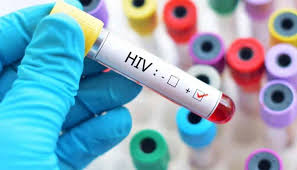Islamabad, Mar 29, 2025: Sindh’s Mirpurkhas district is witnessing an alarming surge in pediatric HIV cases, drawing concerns similar to Larkana’s devastating outbreak in 2019. Recent health reports reveal that 150 children in Mirpurkhas tested positive for HIV in 2024 alone, making up over 26% of the total 568 pediatric cases recorded in Sindh last year.
The crisis is escalating, with an average of 48 children diagnosed with HIV each month across the province this year.
Escalating Pediatric HIV Cases Across Sindh
According to provincial health authorities, Sindh documented 568 pediatric HIV cases in 2024. Mirpurkhas accounted for a significant portion, with 78 boys and 72 girls testing positive. Other districts reporting high pediatric HIV numbers include:
Read More: Punjab’s Air Ambulance Service Successfully Transfers 100 Critical Patients
- Larkana: 52 boys, 35 girls
- Shikarpur: 27 boys, 19 girls
- Hyderabad: 36 boys, 25 girls
- Jacobabad: 23 boys, 15 girls
Worsening HIV Crisis in Sindh
Sindh remains Pakistan’s second-most HIV-affected province, with 3,446 new cases reported in 2024. These cases include:
- 1,811 men
- 813 women
- 254 transgender individuals
- 568 children
The province recorded an average of 287 new HIV infections per month, with Karachi remaining the most impacted urban center. The highest number of cases in Karachi were documented in:
- South Karachi: 184
- Malir: 164
- Central Karachi: 157
- East Karachi: 151
- Korangi: 134
- West Karachi: 112
- Keamari: 67
Unsafe Medical Practices Driving HIV Surge
Medical experts attribute the escalating HIV cases among children to inadequate infection control measures.
The reuse of syringes and IV drips by unauthorized medical practitioners, and even some licensed doctors in rural Sindh, is identified as a leading cause of transmission.
Dr. Faisal Mehmood, a specialist in infectious diseases at Aga Khan University Hospital, highlighted disturbing findings:
“When we test the parents of infected children, most are HIV-negative. Even their siblings test negative.
This strongly indicates that unsafe medical practices, particularly syringe reuse, are the primary mode of HIV transmission among children.”
Mirpurkhas at Risk of a Major HIV Outbreak
Health experts warn that Mirpurkhas is on the brink of an HIV outbreak similar to Larkana’s 2019 crisis, where over 900 children were infected due to medical negligence.
Immediate intervention is necessary to prevent a similar catastrophe.
Sindh continues to grapple with:
- Unsafe injection practices
- Unregulated blood transfusions
- Poor infection control in healthcare facilities
Urgent Measures Needed to Control HIV Spread
Public health officials stress the need for a comprehensive strategy to curb the rising HIV infections, particularly in high-risk districts. Key recommendations include:
- Expanding HIV screening services to detect cases early
- Strengthening regulations against unauthorized medical practitioners
- Enforcing strict infection control protocols in hospitals and clinics
Without immediate and stringent preventive measures, Mirpurkhas risks becoming the next major HIV hotspot in Sindh.
Addressing this growing crisis requires collective efforts from healthcare authorities, policymakers, and the local community.









